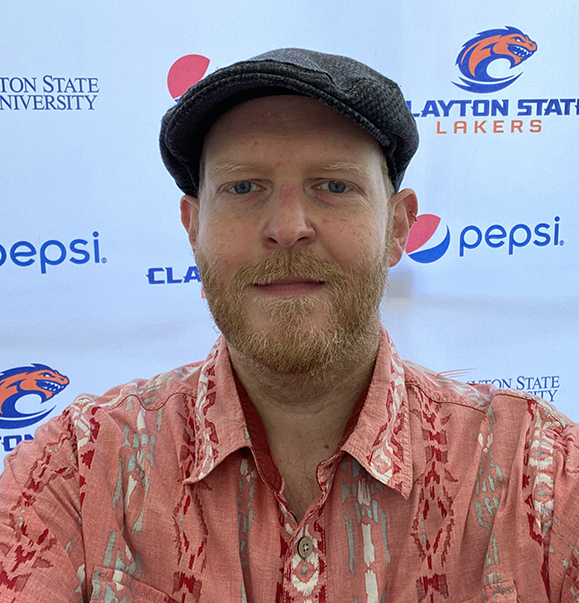Bachelor of Arts in English
with an available Concentration in Secondary Education
and Master of Arts in Liberal Studies Combined Degree Program
English Majors are Uniquely Prepared for:
- Careers in media, education, marketing, professional writing, and more
- Graduate studies, such as library science and creative writing
- Professional schools, such as law school and medical school
Your story matters!
Students who study in the English department learn to use the power of language to inspire, persuade, reflect and question, draw empathy, entertain and awe, and expand our understanding of the world and ourselves.
Our students gain the foundation to thrive and to be creative, imaginative thinkers and problem-solvers, and to participate effectively in an ever-changing, information-based society. Because these skills are in high demand, our graduates have found careers in teaching, technical/professional writing, editing, publishing, advertising, public relations, and nonprofits, as well as in business, marketing, financial services, and banking. Others have pursued advanced degrees in literature, professional writing, law, medicine, teaching, and business administration.
Mission
The Department of English develops students' creative, imaginative, and problem-solving skills to equip them to thrive in their civic, personal, and professional lives in an ever-changing, information-based society. The English department cultivates a vital community for literature and writing on campus and in the community.
Our Programs
The Department of English offers both an undergraduate degree and courses in graduate degrees. At the undergraduate level, we have courses in the core curriculum; courses that comprise a major and minor in English; courses for middle level teacher education majors; and content courses for secondary education students. At the undergraduate level, we offer a major (Bachelor of Arts) and minor in English, and a badge in Professional Writing Proficiency. At the graduate level, we offer courses in the Master of Arts in Teaching English, the Master of Arts in Liberal Studies with an English concentration, and a Combined BA/MALS with an English concentration.
Our core courses include first-year writing (ENGL 1101 English Composition I, ENGL 1102 English Composition II, Core IMPACTS Area Communicating in Writing ) and literature survey courses (2000-level literature courses, Core IMPACTS Area Arts, Humanities, and Ethics). Students in the First-Year Writing program acquire skills that will increase their ability to write for a wide variety of professional and academic contexts. The course sequence offers instruction in writing processes, collaborative writing strategies, methods of organization, research skills, discourse conventions of Standard Written English, and rhetorical strategies. The literature survey courses introduce students to some of the greatest writings and ideas humankind has created, thus expanding their understanding of themselves and their cultures.
Throughout their coursework, students will learn to understand multiple perspectives, make connections across disciplines, and critically evaluate, interpret, and synthesize information from various sources. Furthermore, students will learn to read critically, write effectively, think analytically, work collaboratively, apply technology, and communicate clearly. Students will have the opportunity to practice these skills as they work with professors on research projects or as they participate in one of the internships hosted by our department in producing the Cygnet (our literary magazine), publishing Connections (our First-Year Writing textbook) or The Vibrant Voice (our newsletter), or writing for social media.
The English major prepares students for success in the following:
- Graduate study (e.g., in English, library science, technical writing, and creative writing)
- Professional schools (e.g., law, medical, divinity)
- Careers in education, media, marketing, public relations, professional and technical writing, and many others
Program Outcomes
- Analyze and evaluate texts that reflect diverse genres, time periods, and cultures.
- Analyze the ways in which language and literature are informed by elements of culture, such as ethnicity, gender, histories, religious or philosophical identity, race, and sexuality.
- Interpret texts from various perspectives by using close readings supported by textual evidence and informed by critical theory.
- Produce a variety of multimodal materials, such as visual, sonic, gestural, spatial, non-verbal, and electronic texts, for a range of creative and rhetorical contexts and audiences.
- Conduct effective research and writing by using a variety of technological and information sources.
Follow Us
Contact Us

Dr. Matthew Sansbury
Interim Department Chair
(678) 466-4897



